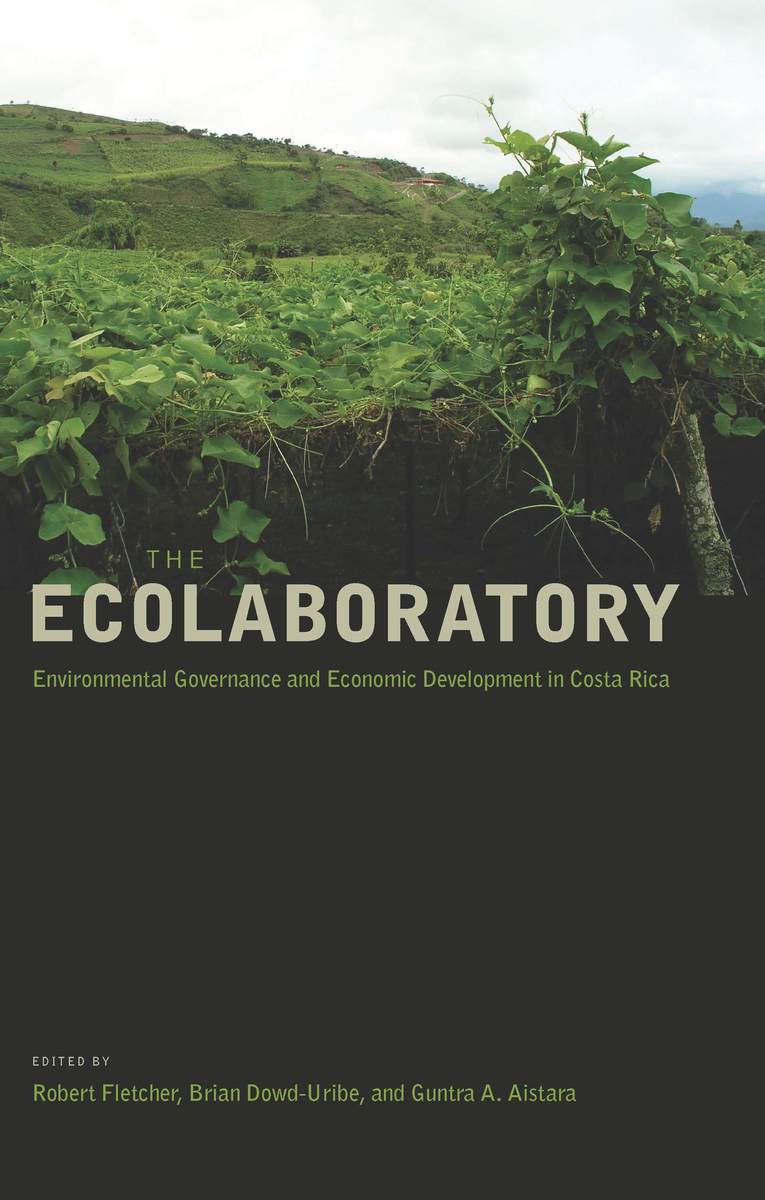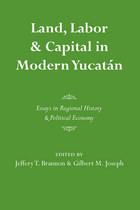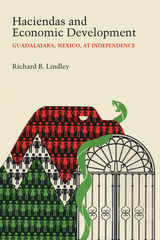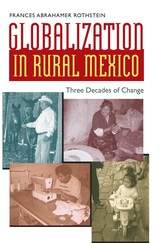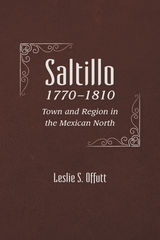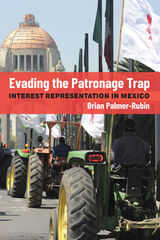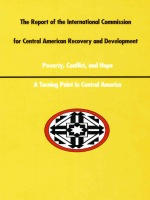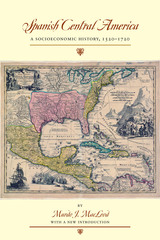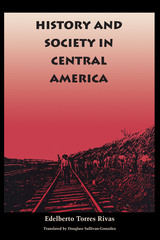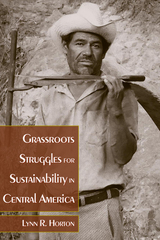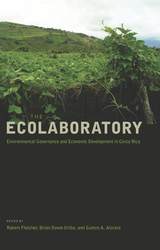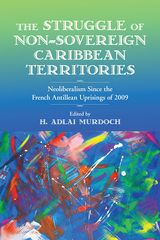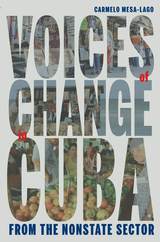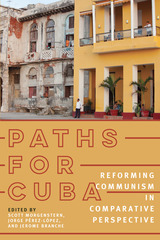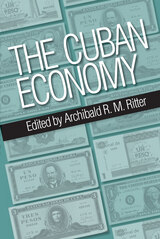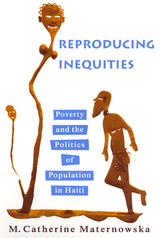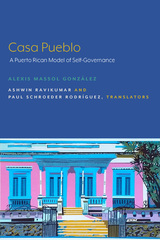The Ecolaboratory: Environmental Governance and Economic Development in Costa Rica
University of Arizona Press, 2020
Paper: 978-0-8165-5324-2 | Cloth: 978-0-8165-4011-2 | eISBN: 978-0-8165-4132-4
Library of Congress Classification HC143.Z9E5335 2020
Dewey Decimal Classification 333.7097286
Paper: 978-0-8165-5324-2 | Cloth: 978-0-8165-4011-2 | eISBN: 978-0-8165-4132-4
Library of Congress Classification HC143.Z9E5335 2020
Dewey Decimal Classification 333.7097286
ABOUT THIS BOOK | AUTHOR BIOGRAPHY | REVIEWS | TOC
ABOUT THIS BOOK
Despite its tiny size and seeming marginality to world affairs, the Central American republic of Costa Rica has long been considered an important site for experimentation in cutting-edge environmental policy. From protected area management to ecotourism to payment for environmental services (PES) and beyond, for the past half-century the country has successfully positioned itself at the forefront of novel trends in environmental governance and sustainable development. Yet the increasingly urgent dilemma of how to achieve equitable economic development in a world of ecosystem decline and climate change presents new challenges, testing Costa Rica’s ability to remain a leader in innovative environmental governance.
This book explores these challenges, how Costa Rica is responding to them, and the lessons this holds for current and future trends regarding environmental governance and sustainable development. It provides the first comprehensive assessment of successes and challenges as they play out in a variety of sectors, including agricultural development, biodiversity conservation, water management, resource extraction, and climate change policy.
By framing Costa Rica as an “ecolaboratory,” the contributors in this volume examine the lessons learned and offer a path for the future of sustainable development research and policy in Central America and beyond.
This book explores these challenges, how Costa Rica is responding to them, and the lessons this holds for current and future trends regarding environmental governance and sustainable development. It provides the first comprehensive assessment of successes and challenges as they play out in a variety of sectors, including agricultural development, biodiversity conservation, water management, resource extraction, and climate change policy.
By framing Costa Rica as an “ecolaboratory,” the contributors in this volume examine the lessons learned and offer a path for the future of sustainable development research and policy in Central America and beyond.
See other books on: Costa Rica | Economic development | Environmental Governance | Fletcher, Robert | Sustainable development
See other titles from University of Arizona Press
